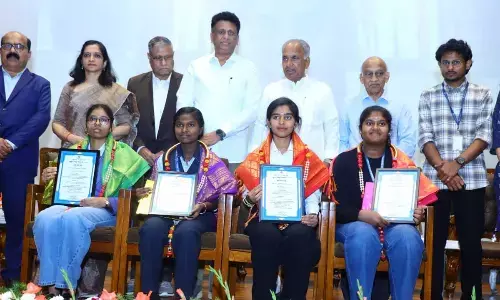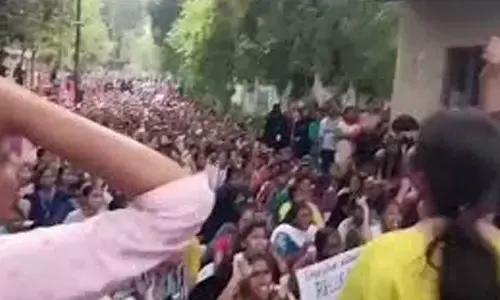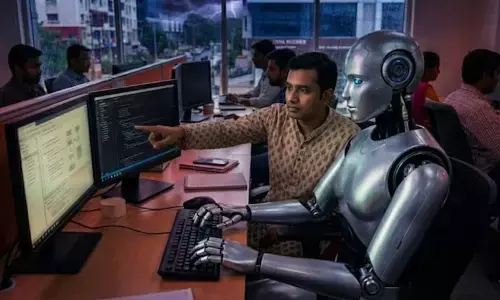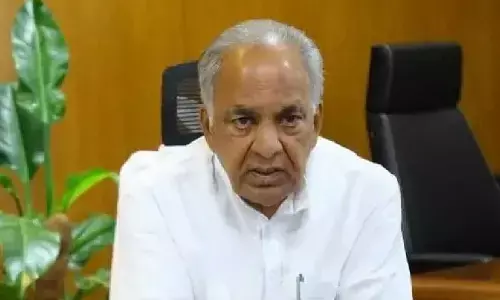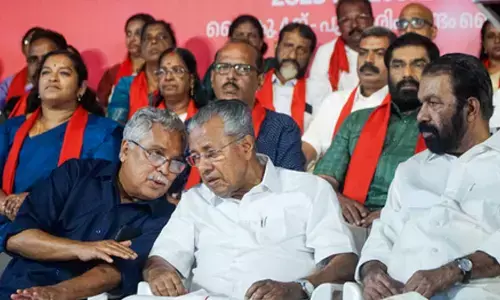Women, the key to food security
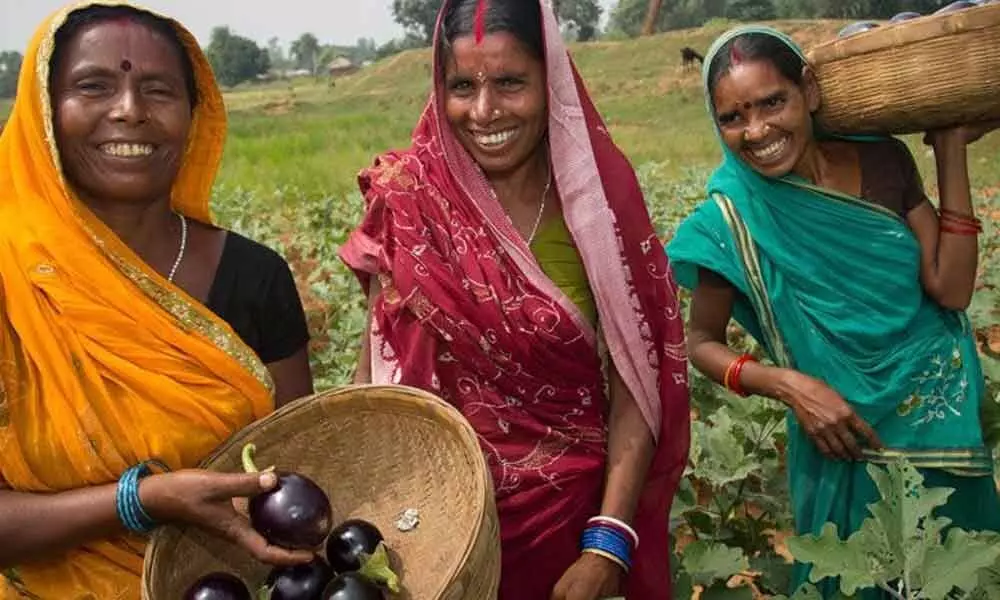
The gastronomic world never had it better. Globalisation probably worked best for food businesses as foodies to connoisseurs constantly seek new experiences for their taste buds.
The gastronomic world never had it better. Globalisation probably worked best for food businesses as foodies to connoisseurs constantly seek new experiences for their taste buds. Fine dining to takeaways to snappy home deliveries, food moves like never before.
Apps, offers, discounts, food festivals, eats, treats and sweet meats jostle for space in the busy schedules of the urban denizens.
And yet the other half still is hungry. Like never before. Millions still go to bed hungry or half full. Malnourishment, deficiency and deprivation mark the lifespan of millions across the developing world.
Hunger Helpline, which should have been a priority for governments, remains the tragically ironic tagline for a junk food outlet.
Today is World Food Day. The day when the world needs to relook at its food issues, starting from its universal availability to a healthy, balanced diet for everyone, from food security which is access to food, to food sovereignty that is control over their food to food safety, which is healthy, uncontaminated food.
As with most life issues, it is women who are marginalised in food security as the ingrained inequalities in a society deprive a woman of options of livelihood, skills, training, resources and reach.
The hand that cooks and feeds the family often has not enough food to sustain her own health. Mothers who sacrifice for their children, wives who 'adjust' for the sake of their husbands are, unfortunately, perpetual features of families.
Consistent availability of quality food is still not guaranteed for most people, least of them women. This in spite of growing volume of food production across the world.
There is a certain prototype of a woman who is denied food security. And it is the woman farmer or the widow of a farmer who comes closest to this prototype.
Of someone who has no resources to get a healthy diet, is severely anaemic, who puts her children's welfare first and has no control over her means of livelihood, the fact that she is the primary food provider to not just her family but to an entire community notwithstanding.
There are larger factors at play such as lack of ownership of land, lesser wages, lack of direct access to market and absence of skills to build up allied occupations, even while she is contributing immensely to agriculture and food production.
In urban areas, the new fad for organic and health food may have improved general consumption quality but food security of women is still plagued by problems such as erratic lifestyle, hectic work schedules, contamination, pollution, lack of education and employment opportunities and insufficient incomes.
Food rich in sugar, starches, chemicals and additives per force becomes the staple diet, especially for women and children, thus severely hampering their nutrition intake, causing obesity, diabetes, hypertension, cardiovascular diseases and others.
Culturally and emotionally, a woman is entrusted with the responsibility of handing out food to the family members, a job that does not, however, guarantee her own substantial intake.
The classic film dialogue "Mera Kya Hai beta, mai tho sukhi roti namak ke saath khaaloongi," meant to dramatically spell poverty thus, incidentally, defines many other things. Women's lack of control over food, inaccessibility of food, low quality diet and, therefore, malnutrition and chronic ill health.
United Nations Food and Agricultural Organisation which calls for the World Food Day on October 16 says it is women who hold the key to food security.
It emphasizes on the importance of women becoming drivers of agricultural growth and food production so that they can access and ensure abundant, nutritious food.
The theme for this year's Food Day is action to make healthy and sustainable diets affordable and accessible to everyone. Especially, the food providers, women.
It is not enough to eat. It is important to stop and think what to eat. It is important to eat adequately. It is crucial to eat nutritiously. And to have control over the availability, quality and choice of food we eat. That is what World Food Day is all about.




